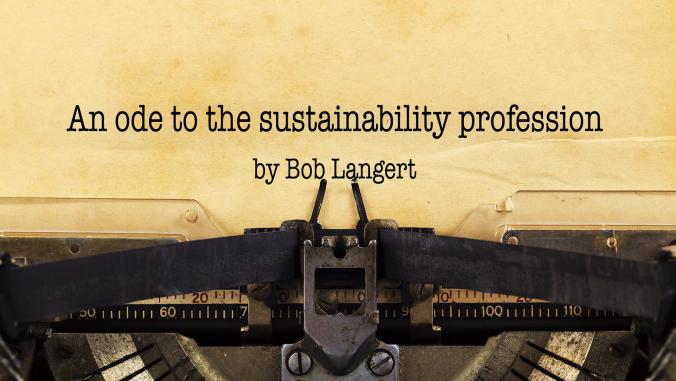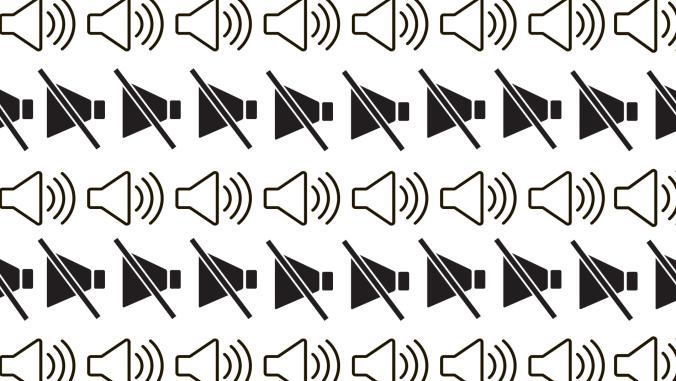Sustainability leadership amid fear and pressure
Lessons for leaders: Believe in the positive side of people; don't shy away from conflict; and know that your reputation has less to do with what you do than how you do it.

Part One of a three-part series.
An agricultural group recently asked me to speak to them about leadership during times of fear and pressure. It made me think. I never really thought about leadership that way. Upon reflection, I realized much of my experience dealt with tumult and turbulence.
You may not be surprised to hear that McDonald’s has many detractors. I dealt with them, seemingly daily, either in my mind or in reality, for nearly 25 years.
To be the leader I wanted to be — well, I wish I knew what I know now. As pressure is innate to the sustainability job, I want to pass on what I learned to you, unplugged, to make your leadership journey quicker and easier. That’s the purpose of this three-part series.
Since 1988, I’ve been a part of many dark and ugly campaigns, books, movies and protests. In my talks with public audiences, I often would ask, who has seen the movie "Super Size Me"? Typically, half the hands would go up. I would then ask, who read "Fast Food Nation" as part of their school curriculum? At least one-third had.
Since 1988, I’ve been a part of many dark and ugly campaigns, books, movies and protests.
Having fast food characterized as junk food is not fun. Even friends and neighbors have taken me to task about "factory farming." These assaults on what you do for a living are maddening and, potentially, debilitating.
Many professionals and companies get fearful under attack and play it safe.
Which leads to my first lesson learned: Don’t get sucked into fear and anger. It’s totally counter-productive. That’s what the other side wants. Why give it to them? I guarantee you will make bad decisions based on the madness factor. You need to stay optimistic, positively engage with your critics and be savvier than them.
Accentuating the positive
I gave a talk to all the lawyers at McDonald’s a while ago. Many of them knew and observed that I would talk with many stakeholders who disliked McDonald’s. During the Q&A portion, a person asked me how I could get along with all these "negative" groups and people.
It stirred in me a response that is at the core of my leadership beliefs: Assume innocence in all people.
I said: "I never look at those coming after McDonald’s as bad, evil people. I start from a position that they are a passionate person like me; a human being who cares, like me; that they are sincere in what they are doing, like me." It’s empowering and freeing. And it doesn’t mean you agree.
A few years back I violated my own principle. There was a Burger Off group arriving from Australia with some 10,000 signatures to give to senior management to protest a new McDonald’s restaurant site it was rejecting. I was to meet the group and accept the signatures.
The campaign was bogus. The restaurant site being protested was next to an Arby’s and a gas station, not nestled in the pristine mountains. The event was a media stunt. I did not want to have my picture taken shaking their hands, so as they approached me, yelled at me and screamed their ugly rhetoric, they extended their hands for a shake. I moved away, with a coffee cup conveniently in my right hand.
They won. I lost. It still nags at me, the disappointment in myself. It’s my reminder to treat people with respect, always.
Humiliated and humbled
But I’m getting ahead of myself. I went through a leadership conversion process in my mid-20s. I was a very poor leader until I was totally humiliated and humbled.
It was the early 1980s. I was a newly minted Kellogg MBA novice manager in charge of 250 grizzly truck drivers and seasoned distribution workers at Baxter Travenol outside Chicago. I was hired to cut costs. I thought my role as a leader was all about implementing a program.
I thought leadership was about managing. I was so wrong.
I thought leadership was about managing. I was so wrong.
I needed to take the chrome off their Peterbilt trucks and crack down on their overtime. I did it with very little sensitivity to the people affected.
The truck drivers collectively wrote a letter to the company president. It was a 10-page diatribe describing me as aloof and uncaring. I’ve kept it handy ever since, so if I get too big for my britches, too full of myself, I read it to get grounded.
I was determined to change. It started by being myself. I did care about the people. I want to share, connect and have really good personal and business relationships. Why was I trying to act like someone else?
That led to a key lesson: I committed to bring my whole self to work every day.
A bit later, I got rejected for a promotion. When I asked why, they said, "We see you as a follower, not a leader." That has stuck with me ever since. I left Baxter for this reason, joined McDonald’s in 1983, now "converted," with a mission to be a better leader.
I was challenged early on with the animal rights movement. Was I apprehensive about how to handle leaders of the animal rights movement such as Peter Singer and Henry Spira? You betcha.
Fear comes from the unknown. To relieve the fear valve, get to know others, truly develop personal relationships —even with those you may think are on the "other" side. They are just like me, right?
How can Peter Singer be just like me? He’s the father of the animal rights movement. I love meat.
I decided to meet him and Spira (who led Animal Rights International) for breakfast. Ends up Singer and Spira were two of the smartest guys I ever met. Both were easy to talk to. I would welcome either as my next-door neighbor. I read Singer’s book beforehand, "Animal Liberation," trying hard to get into his mind.
Which is another lesson: Transform yourself into the mind of your "opposition."
You might find out you have more in common than you think. Why not meet? Why not learn from them? Whenever you get into a human relationship, the other side sees you as a human being, not as a cold corporate robot. Be sensitive to their side. You care about the same overarching issue. For example, I cared very much about good farm animal treatment.
Whenever you get into a human relationship, the other side sees you as a human being, not as a cold corporate robot.
Better living through conflict?
A funny aside: I hired an internal supply-chain person to lead our animal welfare efforts. I took him along for this breakfast meeting. My colleague ordered every animal product on the menu — lots of bacon, sausage and eggs. I thought: He is either oblivious to his impact, or he is doing this for some Machiavellian effect.
I couldn’t wait to ask him. Turns out, he was oblivious. Peter Singer put this whole incident in one of his books. It left him distrustful of my guy.
A good lesson: How you conduct yourself often says even more than your words.
Most see conflict as a big problem. I had a wonderful HR coach tell my group a long time ago something that has stuck with me ever since. She said, "You have to have conflict to get better."
Can you imagine a pro athlete getting better without competitors pushing them all the time?
That is: It is natural and expected to have conflict when it comes to sustainability.
How you deal with conflict is the real issue. With stakeholders, why not see conflict as an opportunity?
Greenpeace created a big conflict with us at McDonald’s. It published its "Eating Up the Amazon" report in April 2006, and decided to target McDonald’s U.K. restaurants to help spread its story. Reluctantly, I felt its campaign was smart and provocative. Protestors dressed as chickens, visited our restaurants and asked for service. Greenpeace also faxed us a set of rigid demands.
I talked to my friends at Conservation International and the World Wildlife Fund. They agreed with Greenpeace. At the same time, I learned that McDonald’s supply chain consumed less than .5 percent of the soy grown for animal feed worldwide.
I believe most companies would put their head in the sand and say, "It’s not my problem."
I still believe my call to Greenpeace that day was my bravest call ever. I finally had reached a stage in my leadership maturation when I was willing to stick my neck out and tell Greenpeace straight up: "While we agree with your overarching premise, we totally disagree with your solution. Your set of demands is ridiculous. We cannot do it alone. We need to work with others."
Amazingly, Greenpeace agreed to work together. We devised a way to recruit other retailers and suppliers to create change and develop a soy moratorium in a matter of three months — happily announced by the soy industry itself.
I was a small part of preserving the Amazon. What a great feeling!
The lesson: Stand up for what you believe in. Don’t be afraid to meet with your critics.
There’s really no downside to doing this. At worst, your company’s public posture will be seen as admirable: You are open and engaging, honest and forthright. At best, you can come up with solutions.
By the way, when a stakeholder judges your company, he or she will form an opinion of you as a leader, and your company overall, on the company's openness, honesty and transparency.
I learned this: Your reputation has much less to do with what you do than with how you do it.
It’s OK to make mistakes and show imperfections. The process of trying is what matters. It shows you care.





